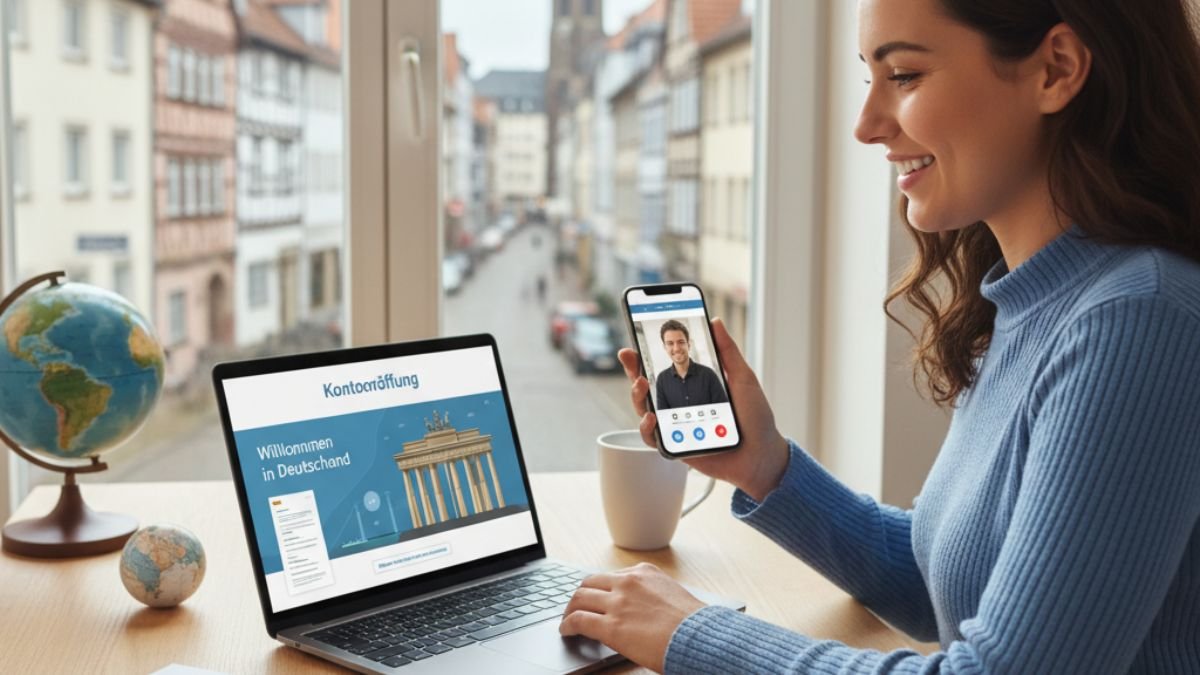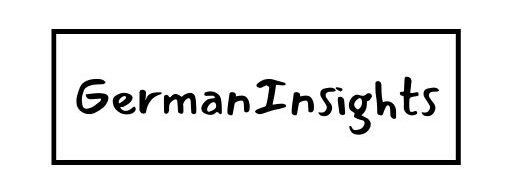The Expat’s Guide to Opening a German Bank Account (Even Before You Arrive)

Moving to Germany is an exciting prospect, filled with new opportunities and experiences. But before you can fully immerse yourself in the local culture (and cuisine!), there are a few practicalities to sort out. One of the most crucial is opening a German bank account. A local IBAN (International Bank Account Number) is essential for everything from renting an apartment and setting up utilities to receiving your salary.
This guide will walk you through the entire process, whether you’re already in Germany or planning your move from abroad. We’ll explore the different banking options available, the documents you’ll need, and how to navigate the system, even if your German is still a work in progress.
Can You Open a Bank Account Before Arriving in Germany?
The short answer is yes, it is possible, but your options will be different than if you were already a resident. Many traditional German banks require an Anmeldung (proof of residence registration) to open a Girokonto (current account), creating a classic catch-22 for newcomers: you need an address to get a bank account, but you often need a bank account to secure a rental contract.
Fortunately, the rise of digital banking and specialized services for expatriates has made this hurdle much easier to overcome. Here’s a breakdown of your options:
- Online and Digital Banks: Many modern banks, often referred to as ‘neobanks’ or ‘fintechs’, have streamlined online application processes that are perfect for expats. Some may not require an Anmeldung immediately, allowing you to get a head start on your financial setup.
- Specialized Expat Services: Companies like Expatrio and Coracle cater specifically to those moving to Germany, particularly students and those requiring a Sperrkonto (blocked account) for their visa. These services often bundle a blocked account with a current account that can be opened from your home country.
- International Banks: If you bank with a large international institution like HSBC, they may be able to assist you in opening a German account before you move.
Choosing the Right Bank for You: A Comparison
Germany has a diverse banking landscape, from traditional brick-and-mortar institutions to nimble online-only players. Here’s a look at the main types:
| Bank Type | Pros | Cons | Best For |
| Traditional Banks (e.g., Deutsche Bank, Commerzbank, Sparkasse, Volksbank) | In-person customer service, wide range of services (mortgages, investments), extensive ATM network. | Often require proof of residence, can have more bureaucracy and fees, English support may vary. | Those who prefer face-to-face interaction and need a comprehensive suite of financial products. |
| Online/Digital Banks (e.g., N26, Bunq, Tomorrow) | Easy online setup (often before arrival), user-friendly apps, English-speaking customer service, often low or no monthly fees. | No physical branches, may have limits on free cash withdrawals. | Expats looking for a convenient, low-cost, and English-friendly banking solution. |
| International Banks (e.g., HSBC) | Seamless international transfers, established global presence. | May have higher fees, fewer branches in Germany. | Individuals who frequently manage finances across multiple countries. |
Top Tip: For most expats, a digital bank is an excellent starting point due to the ease of opening an account and the English-language support. You can always open an account with a traditional bank later if you need more specialized services.
The Essential Checklist: Documents You’ll Need
While requirements can vary slightly between banks, here are the core documents you’ll generally need to provide:
- Valid Passport or National ID Card: This is non-negotiable for identification purposes.
- Proof of Address (Anmeldebescheinigung): For most traditional banks, this is a mandatory document you receive after registering your address at the local citizens’ office (Bürgeramt).
- German Tax Identification Number (Steuerliche Identifikationsnummer): This will be sent to you automatically after you register your address. Some banks may ask for it during the application process or shortly after.
- Proof of Income or Employment (Optional): Some banks may request this, especially if you are applying for a credit card or overdraft facility.
- Valid Visa or Residence Permit (for non-EU citizens): You will likely need to present this to prove your legal status in Germany.
The Step-by-Step Guide to Opening Your Account
1. If you are opening an account from abroad
- Choose an online bank or expat service: Research options like N26, Bunq, or Expatrio to see which best suits your needs.
- Start the online application: This can usually be done through their website or mobile app.
- Video Identification: Be prepared for a video call to verify your identity. You will need your passport for this.
- Receive your details: Once approved, you will receive your IBAN and other account details electronically. Your bank card will be mailed to your address.
2. If you are opening an account in Germany
- Register your address (Anmeldung): This is your first and most crucial step. Book an appointment at your local Bürgeramt.
- Choose your bank: Decide whether a traditional or online bank is the right fit.
- Gather your documents: Make sure you have all the necessary paperwork from the checklist above.
- Apply online or in-person: For traditional banks, you will likely need to schedule an appointment. For online banks, the process is digital.
- Complete the identification process: This will either be in-person at the bank, via a PostIdent procedure at a local post office, or through video identification.
Understanding German Banking Fees
While many German bank accounts are low-cost or even free, be aware of potential charges:
- Account Maintenance Fees (Kontoführungsgebühren): Some traditional banks charge a monthly fee for managing your account. Many online banks offer free accounts.
- ATM Withdrawal Fees (Geldautomatengebühren): Banks are often part of ATM networks (e.g., Cash Group or CashPool). Withdrawing from an ATM outside your network may incur fees. Online banks often allow a certain number of free withdrawals per month.
- Credit Card Fees (Kreditkartengebühren): An annual fee for your credit card is common, although many accounts come with a free debit card (Girocard).
- International Transfer Fees (Auslandsüberweisungsgebühren): Sending money outside the SEPA (Single Euro Payments Area) zone will likely involve fees.
By preparing in advance and choosing the right bank for your needs, opening a German bank account can be a smooth and straightforward process. Welcome to Germany!
If you’re looking for more blog like German Grocery Prices in 2025 and What’s a ‘Comfortable’ Salary in Germany? subscribe to join us.






